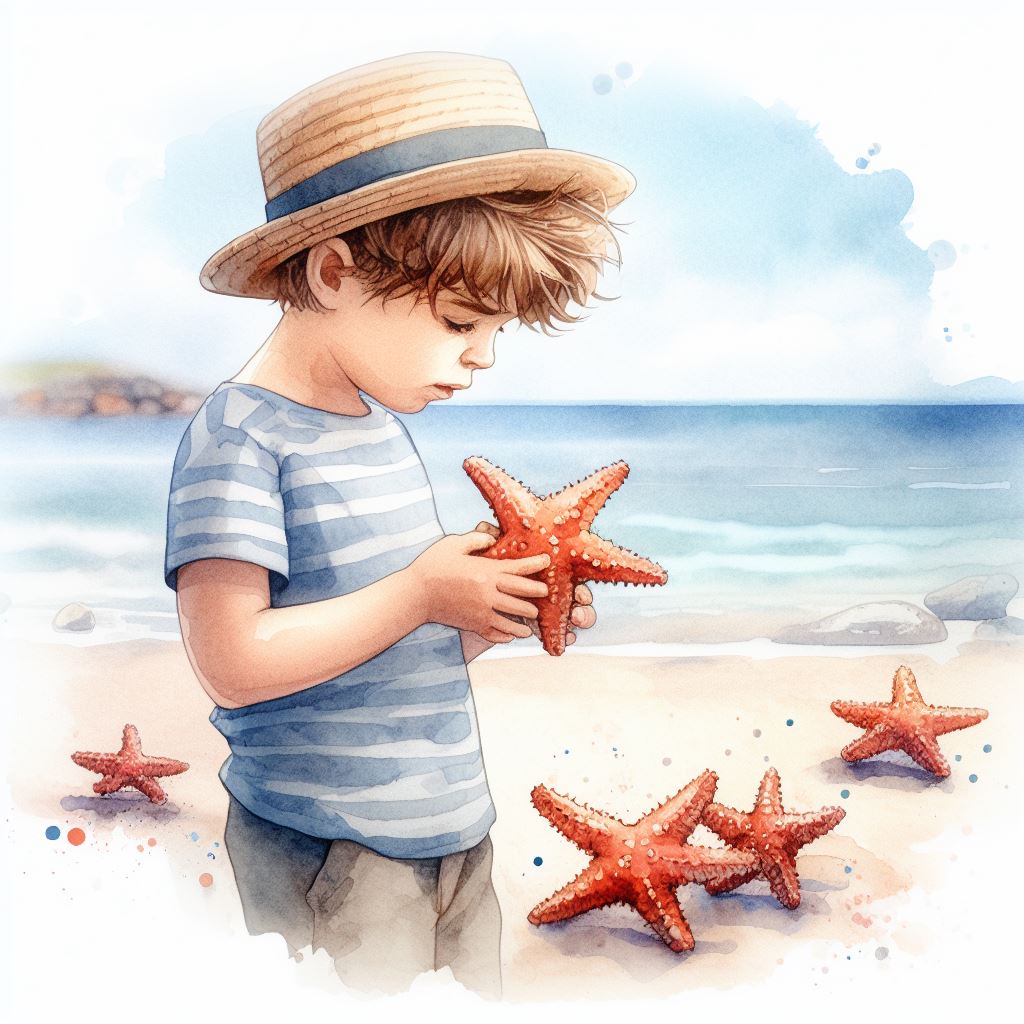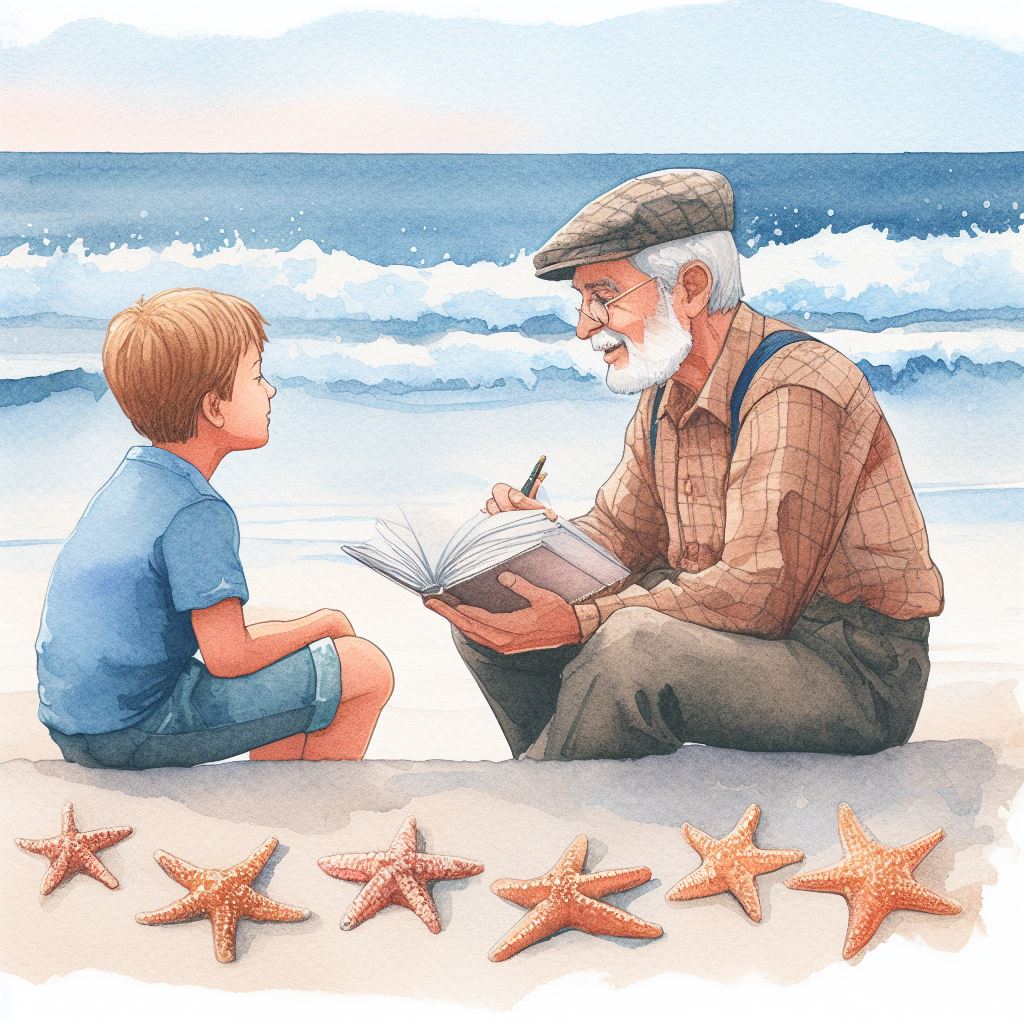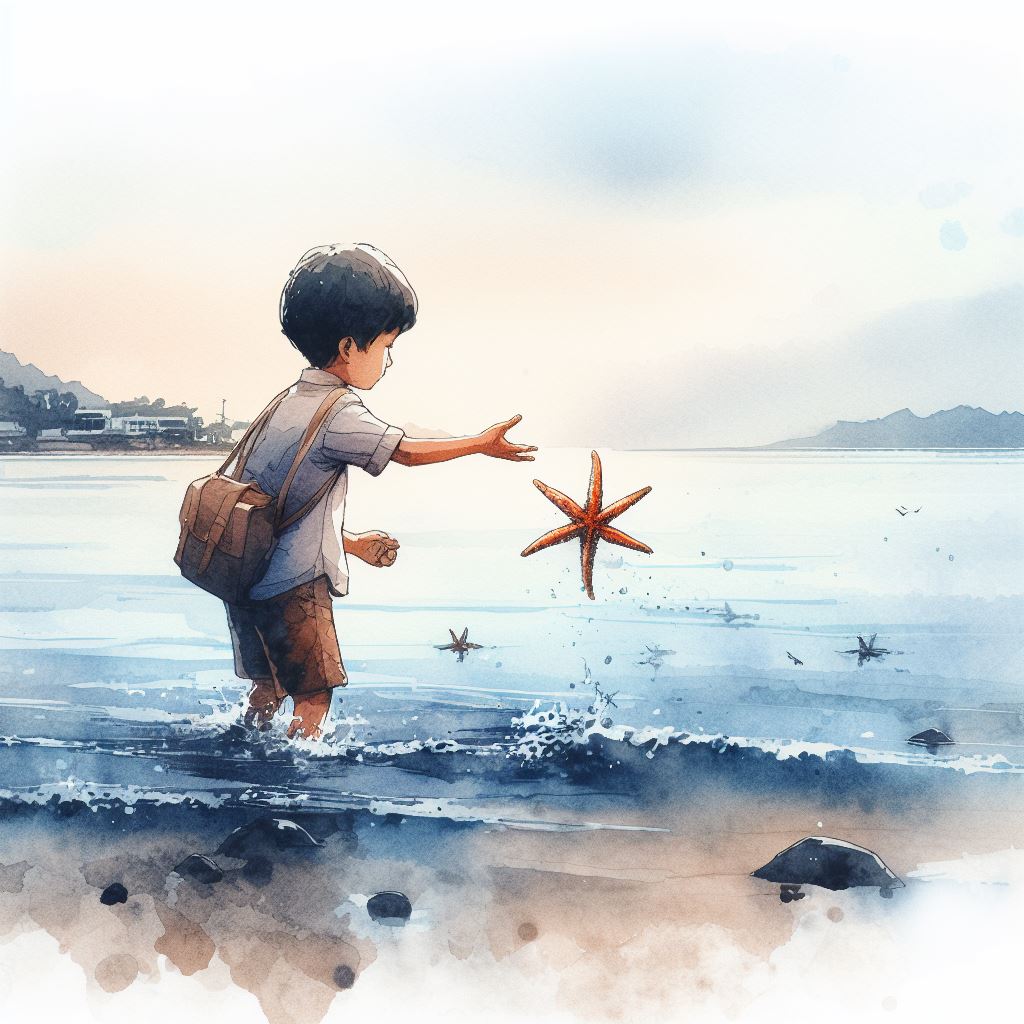There’s a famous story that’s been told and retold for decades about a boy, a beach, and some starfish that holds a powerful message. I first heard it years ago, and its motivational punch still sticks with me today.
The tale goes like this:
Once upon a time, there was an old man who used to go to the ocean to do his writing. He had a habit of walking on the beach every morning before he began his work. Early one morning, he was walking along the shore after a big storm had passed and found the vast beach littered with starfish as far as the eye could see, stretching in both directions.

Off in the distance, the old man noticed a small boy approaching. As the boy walked, he paused every so often, and as he grew closer, the man could see that he was occasionally bending down to pick up an object and throw it into the sea. The boy came closer still, and the man called out, “Good morning! May I ask what it is that you are doing?”
The young boy paused, looked up, and replied, “Throwing starfish into the ocean. The tide has washed them up onto the beach, and they can’t return to the sea by themselves,” the youth replied. “When the sun gets high, they will die unless I throw them back into the water.”
The old man replied, “But there must be tens of thousands of starfish on this beach. I’m afraid you won’t really be able to make much of a difference.”
The boy bent down, picked up yet another starfish, and threw it as far as he could into the ocean. Then he turned, smiled, and said, “It made a difference to that one!”

Powerful, right? Let’s break down some key lessons from this inspirational little tale:
It Starts With One
The boy doesn’t become overwhelmed by the enormity of starfish dotting the beach. He narrows his focus to the one difference he knows he can make – saving a single starfish at a time.
Often, we’re immobilized, thinking we can’t tackle giant problems all at once. Like the boy, start with what you can do for just one person or situation.
The Power of Small Actions
Throwing one starfish doesn’t seem like much. But by repeating his small action over and over, the boy saves dozens, even hundreds of starfish.
Your consistent contribution of small acts adds up to large impact. Applaud your efforts, even if each one alone feels minor.
Having a Positive Impact Matters
The boy knows he alone can’t save every single starfish on miles of beach. But he remains laser-focused on having some positive effect rather than resigning himself to no effect.
Even if you can’t solve an entire problem, make whatever dent you can. Every positive action counts.
Staying Hopeful

It would be easy for the boy to feel defeated by the overwhelming task. But he maintains hope and keeps believing his actions have value.
When you get discouraged, stay connected to your vision of a better future. Progress often happens slowly – keep hope alive.
Making a Difference Looks Different for Everyone
The boy’s contribution was returning starfish to the sea. Your strengths and opportunities to help will look different.
Don’t compare your impact to others. Your unique efforts are vitally important.
Keep Throwing Starfish
Can you imagine how exhausted the boy’s arm must have gotten throwing starfish again and again? But he persevered through discomfort to save as many as possible.

When doubts or fatigue creep in, think of the boy and keep going. You never know whose starfish you’ll throw next.
Ripple Effects
Beyond the direct impact of launching each starfish back to safety, the boy’s small acts likely had ripple effects on observers like the old man as well as the starfish themselves, who may go on to positively impact their ecosystems.
Your lone actions can have far-reaching influence, too. Be the first domino, and keep that chain effect moving!
Conclusion
The starfish story teaches us so beautifully that tiny acts carried out with great love are never wasted. Your small gestures very well may end up changing someone’s entire world.
So persist in helping however you can. Keep throwing starfish, and together, we’ll make the world a little better, one small act at a time.




Pingback: The Pain of Discipline Or The Pain of Regret: You Decide! – Success Minded
Pingback: No One Is Coming. It's Up To Us. – Success Minded